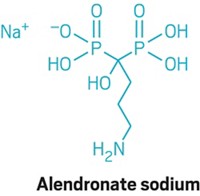Advertisement
Grab your lab coat. Let's get started
Welcome!
Welcome!
Create an account below to get 6 C&EN articles per month, receive newsletters and more - all free.
It seems this is your first time logging in online. Please enter the following information to continue.
As an ACS member you automatically get access to this site. All we need is few more details to create your reading experience.
Not you? Sign in with a different account.
Not you? Sign in with a different account.
ERROR 1
ERROR 1
ERROR 2
ERROR 2
ERROR 2
ERROR 2
ERROR 2
Password and Confirm password must match.
If you have an ACS member number, please enter it here so we can link this account to your membership. (optional)
ERROR 2
ACS values your privacy. By submitting your information, you are gaining access to C&EN and subscribing to our weekly newsletter. We use the information you provide to make your reading experience better, and we will never sell your data to third party members.
Safety
Supreme Court Blocks Generic Drug Lawsuits
Pharmaceuticals: Narrow ruling shields industry from liability claims in state courts
by Glenn Hess
June 26, 2013

In a major victory for the pharmaceutical industry, a divided Supreme Court ruled on June 24 that generic drug makers cannot be held liable for alleged flaws in the designs of their Food and Drug Administration-approved medications.
The 5-4 decision in Mutual Pharmaceutical v Bartlett will limit the ability of lawyers to file personal injury lawsuits in state courts against generic manufacturers, which provide about 80% of the prescription drugs sold in the U.S.
The generic drug industry had warned that the entire regulatory review process could be undermined if medicines considered safe and effective by FDA could later be deemed unreasonably dangerous.
The case “upholds a key principle: decisions about the safety and efficacy of prescription drugs should rest with the scientific experts at FDA,” says Ralph G. Neas, president of the Generic Pharmaceutical Association, an industry trade group.
But the American Association for Justice, the trial lawyers lobby, says the Supreme Court has created a situation in which generic drug manufacturers—unlike brand-name pharmaceutical companies—have no accountability for product design or labeling.
“I know of no other industry where the maker of a product has such limited responsibility for the safety of the product they make,”says Mary Alice McLarty, president of the organization of plaintiffs’ attorneys.
The justices overturned a $21 million jury award won by Karen L. Bartlett, a New Hampshire woman who suffered severe injuries allegedly caused by sulindac, a generic nonsteroidal anti-inflammatory drug made by Mutual Pharmaceutical, now part of India’s Sun Pharmaceutical Industries.
New Hampshire imposes a duty on manufacturers to ensure that the drugs they market are not “unreasonably unsafe.” Bartlett’s attorneys claimed that FDA never should have approved the drug in the first place and argued that sulindac was inherently dangerous based on the number of adverse reaction reports that had been filed with the agency.
But Justice Samuel Alito, writing for the court’s majority, said the lawsuit was barred by federal regulations that require generic drugs to have the same active chemical ingredients and warning labels as their brand-name equivalents.
“State law design-defect claims like New Hampshire’s that place a duty on manufacturers to render a drug safer by either altering its composition or altering its labeling are in conflict with federal laws that prohibit manufacturers from unilaterally altering drug composition or labeling,” Alito wrote. “Because it is impossible for Mutual and other similarly situated manufacturers to comply with both state and federal law, New Hampshire’s warning-based design-defect cause of action is preempted.”
The ruling builds on a 2011 Supreme Court decision that prohibits lawsuits against generic drug manufacturers under a different legal theory — failure to warn about dangerous side effects.
In Pliva v Mensing, the court said those suits are barred because federal law requires generic drug companies to copy the packaging inserts used by brand-name manufacturers. The justices said companies cannot comply with both federal labeling requirements and state-imposed duties to provide stronger warnings.




Join the conversation
Contact the reporter
Submit a Letter to the Editor for publication
Engage with us on Twitter